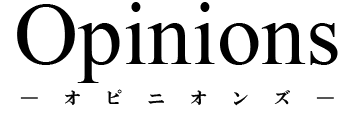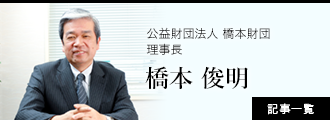
- 記事一覧
- ゲストライター記事一覧
- 宗教が社会を侵食する-トルコの世俗主義の崩壊- Religion erodes society -Collapse of Turkish secularism-
宗教が社会を侵食する-トルコの世俗主義の崩壊- Religion erodes society -Collapse of Turkish secularism-

※日本語訳は英文の後に掲載しています。
When I came to Japan for the first time 5 years ago, one of the most surprising situations for me was the peaceful coexistence of various religions in Japan. In addition, social life was as free from religion as possible. Religion was not at the centre of social life, and nobody was talking about religion. Religion, a personal matter, remained a personal matter. I realized something when I discovered that the Japanese did not know exactly what the concept of secularism was. The Japanese did not have to think about the principle of secularism, which was politically defined as "separation of religion and state affairs and the state being equidistant to religions"; because in Japan, on the contrary to Turkey, there was no religious persecution. When I saw that the Japanese did not have to live under religious oppression and discuss eliminating secularism, I thought that it was a comfort provided by social development and I envied it; because I am an unbeliever born and raised in a country where religion regulates social life. The function of the principle of secularism is to protect people like me. In fact, this principle protects everyone without discrimination.
Because the principle of secularism :
1. Separates religious institutions from state institutions and says that religion may exist in the public sphere but cannot dominate.
2. Provides the freedom that people can practice their faith or belief without harming others or change their religion according to their own conscience or have no faith.
3. States that people will not be put at an advantage or a disadvantage due to their beliefs or disbeliefs and that they will be treated equally.
Both Japan and Turkey are secular countries in terms of their constitutions. In articles 20 and 89 of the constitution of Japan, secularism is expressed as follows:
Article 20 reads:
“Freedom of religion is guaranteed to all. No religious organization shall receive any privileges from the State, nor exercise any political authority. No person shall be compelled to take part in any religious act, celebration,
rite or practice. The State and its organs shall refrain from religious education or any other religious activity.”
Article 89 reads:
“No public money or other property shall be expended or appropriated for the use, benefit or maintenance of any religious institution or association, or for any charitable, educational or benevolent enterprises not under the control of public authority.”
However, while Japan enforces the principle of secularism in the constitution, Turkey does not. I will try to discuss the issue of secularism in Turkey and I will explain how not implementing the principle of secularism and allowing religious rules to regulate social life influence the advancement of a country.
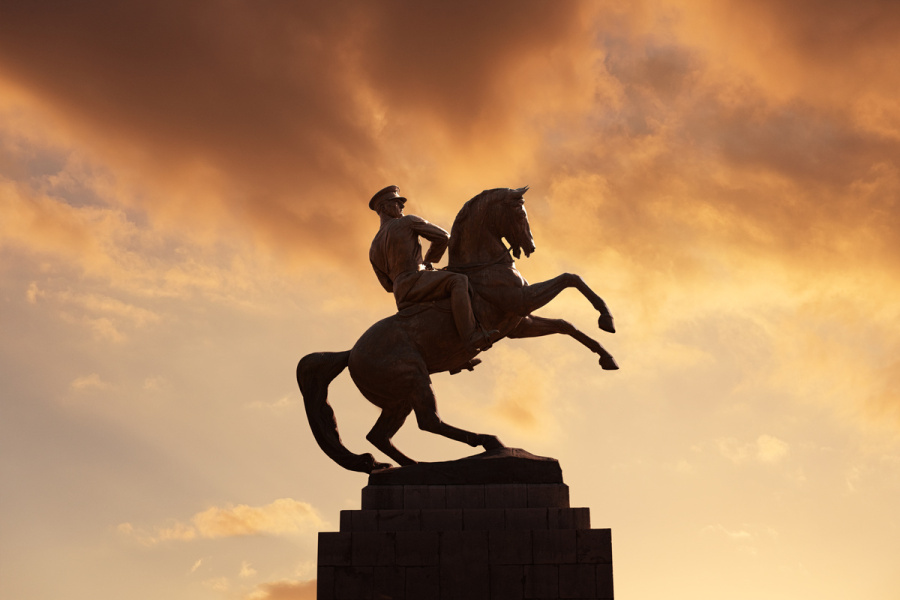
The Principle of Secularism in the Constitution of Turkey
Secularism in Turkey defines the relationship between religion and state. Secularism was first introduced to the country, with the 1928 amendment made in the 1924 Constitution and the provision declaring that "The religion of the State is Islam." was removed. The principle of secularism has been strengthened with Turkey's first president Mustafa Kemal Ataturk's administrative and political reforms to create a modern, democratic and secular state. Nine years after its introduction to the country, secularism was explicitly stated in the second article of the Constitution in 1937. The current 1982 Constitution does not recognize an official religion or does not promote any religion. The essence of the secularism offered by Atatürk is to limit the religion of Islam to personal matters and not be confused with the state affairs.
Defining the nature of secularism in Article 2 of the Constitution of the Republic of Turkey goes as follows:
“The Republic of Turkey is a democratic, secular and social state governed by rule of law, within the notions of public peace, national solidarity and justice, respecting human rights, loyal to the nationalism of Atatürk, and based on the fundamental tenets set forth in the preamble.”
Article 10 of the Constitution contains a statement about religion:
“Everyone is equal before the law without distinction as to language, race, colour, sex, political opinion, philosophical belief, religion and sect, or any such grounds.”
In addition, at the beginning of the constitution, “That no protection shall be accorded to an activity contrary to Turkish national interests, Turkish existence and the principle of its indivisibility with its State and territory, historical and moral values of Turkishness; the nationalism, principles, reforms and civilizationism of Atatürk and that sacred religious feelings shall absolutely not be involved in state affairs and politics as required by the principle of secularism;” has been entrusted .
On the other hand, with the regulation made in Article 24 of the Constitution in 1982, “Religious and moral education and instruction shall be conducted under state supervision and control. Instruction in religious culture and morals shall be one of the compulsory lessons in the curricula of primary and secondary schools. Other religious education and instruction shall be subject to the individual’s own desire, and in the case of minors, to the request of their legal representatives.” contradicted the principle of secularism and the constitution of the state was violated.
To summarize, Turkey can be considered as a secular state in terms of its constitution; but it is a religious country with its political and educational practices and social life. In other words, Turkey is secular by law, but religious in practice.
Impact of Unimplemented Secularism Principle on Turkish Society
Islam is the largest current religion in Turkey according to the state, with 99.8% of the population (5); however, the fact that the percent seems so high is due to the fact that children born are automatically registered by the state as Muslim. Due to the nature of this method, the official number of Muslims include people with no religion and people who are of a different religion than Islam. Although there used to be a religion section on citizen identity cards, this section is not included in the new type of identity cards. However, the belief/faith section is provided in the citizens' e-government system and Islam is automatically selected in each citizen's account. According to the new practice, this option can be changed by the person; however, people are reluctant to register their beliefs in their accounts because they are afraid to experience religious discrimination. The presence of the religion in the identity cards and accounts in the e-government system is against the principle of secularism in the constitution.
The right-wing and conservative Muslims in Turkey are the majority who exercise power over the country. For this reason, right-wing political parties use religion as leverage to get votes from this faction and continuously manipulate their supporters after coming to power. For example, as mentioned at the outset, students from primary school to high school in Turkey are exposed to Islamic propagandas they must attend compulsory religious culture and ethics classes which specifically promotes Islam and forces students to learn Islamic morality. There are also Islamic vocational schools called imam hatip schools in the country, where students are trained to become government-employed imams (an Islamic leadership position). With the discourse of the government, "religious generations" are expected to be raised in these schools, which are expected to show loyalty and obedience to them.
There are 89,259 mosques in Turkey in 2019. In contrast, in the 2018-2019 academic year, the total number of public and private schools in Turkey (from pre-school to high school) was 66,849. As of 2019, 5,138 of these schools are imam hatip schools.
The main problem in the country is that a belief system that should remain personal regulates the way of life of all society by religious rules and religion-based morality, and this situation smothers both non-believers and people of different faiths. What creates these problems is that the religious people, who constitute the majority that assume power in the country, think that they have this so-called right for doing whatever they do and apply pressure on the rest based upon religious rules. This is because the moral rules are shaped not by reason and logic, but by the Arab culture and Arab life of about 1400 years ago. In a society where morality is based on religious beliefs that are supposed to be purely personal but not personal in reality, it is inevitable that the party that constitutes the majority pressures those who are different from it and tries to destroy them.
Socialized and then politicized Islam is a hindrance to the country.
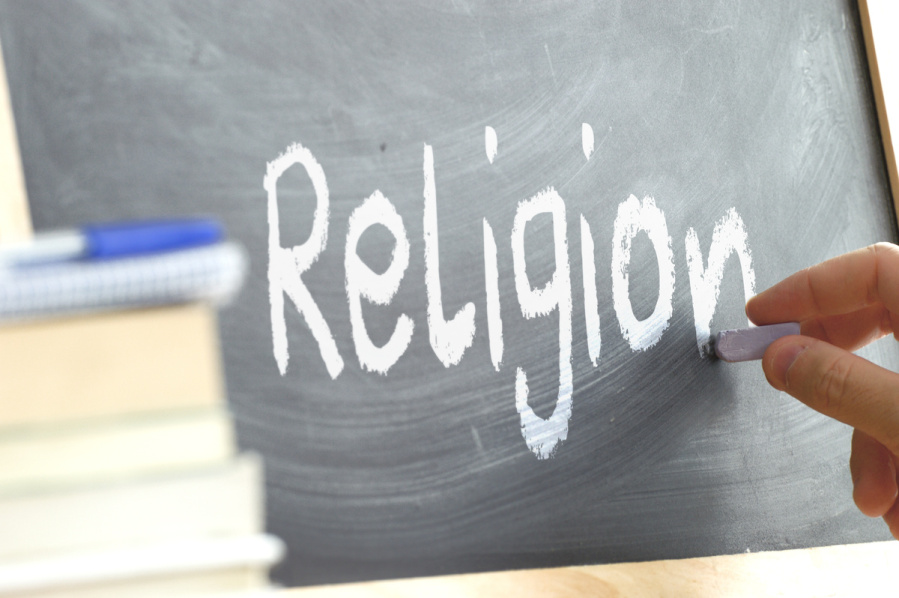
Secular Migration
In recent years, religious pressure and tension have increased, and people have not been able to withstand the religious pressure. Especially the secular, educated, and open-minded people of the country are permanently immigrating or seeking ways of immigration to the countries where they will not face any pressure. Economic instabilities in the country are also one of the leading causes that contribute to the emigration of educated people. According to the Turkish Statistical Institute data, 136,740 citizens has left the Republic of Turkey in 2018. The number of those who went abroad increased by 20.66% in just one year. The majority of those who left are educated and urban people.
The people with lower levels of religiosity, people with no religion, and people who are of a different religion than Islam choose to leave the country. Because they cannot find room for freedom of expression and movement. Their lifestyle is criticized and destroyed on the basis of religious moral values, and they are forced to follow religious rules. The absence of the principle of secularism in practice leads to social disintegration in Turkey. The secular emigration from Turkey includes highly skilled people that can contribute to the advancement and enlightenment of society. This migration can also be viewed as a brain drain. Religious oppression causes educated people to leave the country, preventing the creation of a modern, rational, and enlightened society.
The principle of secularism must have enforcement as well as its constitutional existence because the correct and complete application of the principle of secularism indirectly contributes to the realization of social development as well as protecting individual rights and freedoms. In short, the implementation of the principle of secularism may be related to the differences between the prosperity of Turkey and the prosperity of Japan.
In summary, the principle of secularism is more than keeping religion separate from state affairs. Secularism is the only way for minorities to survive by preserving their identity. Secularism is not just a matter of faith, but a matter of existence. Secularism is not an option but a must for peace in society.
私が5年前にトルコから初めて日本に来たとき、最も驚いたことの1つは、様々な宗教が共存していることでした。また、宗教は生活の中心ではなく、誰も宗教について話していませんでした。あくまで宗教は個人的なものでした。日本人が「世俗主義」の概念を正確に知らないのは、そのことについて考える必要がなかったからだと私は気づきました。日本では、トルコとは対照的に、宗教的迫害はなかったからです。世俗主義の原理は、政治的に「宗教と国政は分離されており、そして国家は宗教と等距離にある」ということです。私は日本人が宗教的抑圧の下で生活する必要も、世俗主義の排除について議論する必要もないことを知って、それは社会の発展によってもたらされたものであり、うらやましく思いました。私は宗教が社会を規制する国で生まれ育った無宗教者だからです。世俗主義の原則の役割は、私のような人々を守ることです。実際、この原則は差別なくすべての人を保護します。
世俗主義の原則:
1.宗教機関は国家機関から分離され、宗教は公共の領域に存在する可能性があるが支配することはできない。
2. 自分の良心に従って、他人に害を与えることなく自分の信仰や信念を実践する自由、またはそれを変えるか、持たない自由。
3.自分の宗教的信念や不信仰によって有利にも不利にもならず、平等に扱われること。
日本とトルコは、憲法上、世俗国家です。日本国憲法第20条および第89条では、世俗主義は次のように表現されています。
第20条
信教の自由は、何人に対してもこれを保障する。いかなる宗教団体も、国から特権を受け、又は政治上の権力を行使してはならない。
2 何人も、宗教上の行為、祝典、儀式又は行事に参加することを強制されない。
3 国及びその機関は、宗教教育その他いかなる宗教的活動もしてはならない。
第89条
公金その他の公の財産は、宗教上の組織若しくは団体の使用、便益若しくは維持のため、又は公の支配に属しない慈善、 教育若しくは博愛の事業に対し、これを支出し、又はその利用に供してはならない。
このように日本は憲法に世俗主義の原則を適用していますが、トルコはそうではありません。世俗主義の原則を実行せず、宗教的ルールが社会生活を規制することが国の発展にどのように影響するかを述べながら、トルコの世俗主義の問題について考えてみようと思います。
トルコ憲法における世俗主義の原則
トルコの世俗主義は、宗教と国家の関係を定義しています。1924年憲法で「国家の宗教はイスラム教である」と宣言した条項が、1928年の改正で廃止されたことで、世俗主義が最初に国に導入されました。世俗主義の原則は、トルコの初代大統領ムスタファ・ケマル・アタチュルクによる行政改革および政治改革によって強化されました。この改革は、近代的、民主的、世俗的な国家を創設するためのものでした。導入されてから9年後、1937年に憲法の2条で世俗主義が明確に述べられました。現在の1982年憲法は公式の宗教を認めておらず、いかなる宗教も推奨することはありません。アタチュルクの世俗主義の本質は、イスラム教を個人的な問題に限定し、国務と混同しないことです。
トルコ共和国憲法第2条における世俗主義の定義は次のとおりです。
「トルコ共和国は社会の安寧、国民の連帯、正義の希求のなかで人権を尊重し、アタチュルクの国民主義と前文に規定された基本原則に依拠し、民主的で世俗的、社会的な法治国家である。」
憲法第10条には、宗教に関する条文が含まれています。
「すべての個人は、言語、人種、肌の色、性別、政治思想、哲学的信念、宗教、宗派および同様の理由による違いに関わらず、法の下に平等である。」
さらに、憲法の冒頭で、「トルコ国民の利益やトルコの存続、国家と国土の不可分性の原則、トルコ民族の歴史的、精神的価値観、アタチュルクの国民主義と原則、改革、文明主義に反するいかなる思想も擁護されず、世俗主義の原則に準じて、神聖なる宗教的感情を国事行為および政治に決して関わらせてはならない。」と規定されています。
一方で、1982年憲法第24条で定められた規制、「宗教および道徳教育は国家の後見および監督の下で行われる。宗教文化および道徳の授業は初等および中等教育機関における必須授業とされる。これ以外の宗教教育は、個人の希望と、未成年者の場合にも法定代理人の要求に応じてなされる。」これは世俗主義の原則と矛盾し、憲法に違反しています。日本国憲法第20条(「国及びその機関は、宗教教育その他いかなる宗教的活動もしてはならない」)とトルコ共和国憲法第24条の違いは、世俗主義の原則に適応しているかどうか、と言えるでしょう。
トルコは憲法上では世俗国家と見なすことができますが、実際は宗教的な政治、教育的慣習および社会生活を備えた国です。言い換えれば、トルコは法律上では世俗的ですが、事実上は宗教的です。
トルコ社会で世俗主義が適用されないことの影響
イスラム教は現在のところトルコで最大の宗教であり、人口の99.8%を占めています。しかし、その割合が非常に高いように見えるのは、生まれた子供が国によってイスラム教徒として自動的に登録されるためです。このシステムの性質上、公式のイスラム教徒の数には、無宗教の人々とイスラム教以外の宗教の人々も含まれることになります。以前は市民IDカードに宗教セクションがありましたが、新しいタイプのIDカードにはありません。ただし、信念/信仰セクションは電子政府システムで規定されていて、イスラム教が自動的に選択されるようになっています。このセクションは市民が自分で変更できますが、人々は宗教的差別を恐れているため、本当の自分の信仰を自分のアカウントに登録することをためらっています。電子政府システムのIDカードとアカウントに宗教のセクションが存在することは、憲法における世俗主義の原則に反しています。
トルコでは右派で保守的なイスラム教徒が権力の大多数を握っています。このため、右派政党は宗教をてこにしてこの派閥から票を得、権力を握った後も支持者を継続的にコントロールしています。たとえば、冒頭で述べたように、トルコの小・中・高校生は、イスラム教を奨励し、イスラム教の道徳を学ぶ宗教文化と倫理の授業に強制的に出席しなければならず、イスラム教のプロパガンダにさらされています。また、国内にはイマーム・ハティップ学校と呼ばれるイスラムの専門学校があり、学生は政府系のイマーム(イスラムの指導的地位)になるように訓練されています。政府により、これらの学校では「信仰深い世代」が育てられることが期待されており、忠誠と従順を示すことが期待されています。
2019年時点でトルコには89,259のモスクがあります。対照的に、2018-2019学年度では、トルコの公立および私立学校の総数(就学前から高校まで)は66,849でした。 2019年現在、これらの学校のうち5,138校がイマームハティップスクールです。
国の主な問題は、個人のものであるべき信仰が、宗教上のルールと道徳を以て社会全体を規制していることです。この状況は無宗教者や非イスラム教徒の両方を窒息させます。これらの問題を生み出すのは、国の権力の大多数を構成するイスラム教の人々が、何をするにもこのようないわゆる権利を持っていると思っており、宗教的ルールを以て残りの人々に圧力をかけるためです。これは道徳的ルールが理性や論理ではなく、約1400年前のアラブ文化やアラブ生活によって形作られているためです。道徳性が、信仰(=個人的なものであるはずが実際はそうなっていない信仰)に基づいている社会では、過半数を構成する宗教者がそれ以外の人々に圧力をかけ、彼らを否定しようとするのは避けられません。
社会のルールとなり、政治化されたイスラム教は国の障害となっています。
世俗的な移住
近年、宗教的な圧力と緊張感は高まり、耐え難いものになってきていました。特に、世俗的で、高等教育を受け、考え方が柔軟な人々は、宗教的圧力のない国に永続的に移住するか、移民となる方法を探しています。また、国の経済の不安定さも、このような人々が移住を決断する主要な要因の1つになっています。トルコ統計研究所のデータによると、2018年には136,740人の市民がトルコ共和国から出て行きました。海外に移住した人の数は、わずか1年間で20.66%増加しました。去っていった人々の大半は高等教育を受けた都市部の人々です。
信仰が低い人、無宗教の人、イスラム教とは異なる宗教の人々が国を出る選択をします。彼らはトルコに、表現や活動をする上での自由の余地を見つけることができないからです。彼らのライフスタイルはイスラムの宗教的道徳的価値観から批判され否定されており、イスラムのルールに従うことを余儀なくされています。世俗主義の原則が事実上存在しないことは、トルコの社会的崩壊につながります。トルコから永続的に移住した人には、社会の進歩と啓発に貢献できるハイスキルな人々が含まれます。これは、頭脳流出と言えるでしょう。
宗教的抑圧により、教育を受けた人々が国を去ることとなり、近代的で合理的で啓発された社会の創造を妨げます。
世俗主義の原則は憲法上に存在するだけでなく、施行されなければなりません。なぜなら、世俗主義の原則を正しく適用することは、個人の自由と権利を守るだけではなく、間接的には社会の発展につながるからです。つまり、世俗主義の原則の実施は、トルコと日本の繁栄の違いに関係しているのではないでしょうか。
世俗主義の原則は、宗教を国政から切り離すこと以上の意味があります。 世俗主義は、マイノリティーな人々がアイデンティティを維持しながら生きていくための唯一の方法です。 世俗主義は単なる信仰の問題ではなく、生きることに対する問題です。 世俗主義は選択肢ではなく、社会の平和のために必ずなくてはならないものなのです。

トルコ出身。中東工科大学(心理学科)という国立の技術系大学を卒業後、同大学修士課程へ入学(社会心理学科)、テラー・マネジメント理論の文化的世界観・死の顕現化仮説に関する研究を行う。心理学科ではリサーチアシスタントも務める。アンカラ大学修士課程卒業後、文部科学省奨学金で岡山大学社会文化科学研究科(社会心理学科)へ。博士課程に進み、在留トルコ人留学生のアカデミックカルチャーショック・異文化適応に関する研究を行う。
2020年4月~橋本財団ソシエタス総合研究所の研究員として勤務。
トルコ出身。中東工科大学(心理学科)という国立の技術系大学を卒業後、同大学修士課程へ入学(社会心理学科)、テラー・マネジメント理論の文化的世界観・死の顕現化仮説に関する研究を行う。心理学科ではリサーチアシスタントも務める。アンカラ大学修士課程卒業後、文部科学省奨学金で岡山大学社会文化科学研究科(社会心理学科)へ。博士課程に進み、在留トルコ人留学生のアカデミックカルチャーショック・異文化適応に関する研究を行う。
2020年4月~橋本財団ソシエタス総合研究所の研究員として勤務。
Recently Popular最近よく読まれている記事
-

食べていても痩せる 高齢者終末期のカヘキシア(悪液質)
食べていても痩せる。活発に運動を続けている人なら不思議に思わないが、介護度の高い高齢者にそのようなことが果たして起こるのだろうか。起こるのであれば、それはカヘキシアという病態であれば説明できる。 カヘキシア(悪液質)カヘキシアとは、食欲不振・体重減少・全身衰弱・倦怠感などを呈し、生命予後やQOL(qualit… -

終末期の自然な経過を見極めるとは
長期に渡り胃ろうからの栄養を続けていると、注入した物が食道へ逆流したり、唾液や痰の貯留が増えたりして、吸引を繰り返すことになるが、結局のところ、頻回の吸引も間に合わず、心肺停止状態で発見されることが多い。これでは看取りとは言えない。ここに至るまでの言葉を語れない人の苦しみ。このような事態を避ける智慧… -

自閉症スペクトラムと呼ばれているような障害は、実は障害ではない。生物としての人類のバリエーション(変異)の一つである。
自閉症スペクトラムと呼ばれているような障害は、実は障害ではない。生物としての人類のバリエーション(変異)の一つである。本来は人類の、生息環境に対する適応の一つのあり方だというのが、ニューロダイバーシテイ(脳多様性)という考え方に他ならない(詳しくは正高信男著『ニューロダイバーシテイと発達障害』(北大… -

社会保障分野での普遍主義と選別主義について
介護保険や医療保険では、貧富にかかわらず保険によって9割が給付(自己負担は1割)あるいは、7割が給付(自己負担は3割)される。この様な社会保障の方式は、「普遍主義」といわれている。「普遍主義」は、義務教育や、最近では高等学校の授業料にも適応されている(この場合も裕福な人も貧しい人も同様に無償である)。反… -

飲まず食わず(自発的飲食中止)という選択、VSEDをご存知ですか?
前回(Opinionsで9月24日配信記事)は有馬斉氏による安楽死の分類と、我が国の現状についてお伝えしました。また我が国においては、医師の致死的薬剤の処方による積極的安楽死は、法的に支持されていないということもお話ししました。諸外国では医師による致死的薬剤処方による安楽死が認められている国もありますが、もち… -

医療崩壊
ある日の外来。朝の9時から診察室に座りっぱなしでそろそろ3時間が経過。既に再診患だけではなく、その日の新患も回ってきます。で、そうした中に問題のおじさんがいました。「今、○○クリニックで薬をもらっていまして・・・」「30日分貰っているのですが、お腹が痛くなったので、診てもらいに来ました」「○○先生の紹介…
Writer ライター
-
 受賞作品Opinionsエッセイ
受賞作品OpinionsエッセイOpinionsエッセイの記事を見る
-
 ペンネーム東沖 和季
ペンネーム東沖 和季東沖 和季の記事を見る
-
 ニセコ在住下田 伸一
ニセコ在住下田 伸一下田 伸一の記事を見る
-
 ペンネーム 看護師宇梶 正
ペンネーム 看護師宇梶 正宇梶 正の記事を見る
-
 武蔵野大学大学院大谷 航介
武蔵野大学大学院大谷 航介大谷 航介の記事を見る
-
 一般社団法人村楽東 大史
一般社団法人村楽東 大史東 大史の記事を見る
-
 会社員池松 俊哉
会社員池松 俊哉池松 俊哉の記事を見る
-
 (公財)橋本財団研究助成 成果報告
(公財)橋本財団研究助成 成果報告研究助成 成果報告の記事を見る
-
 横浜市立大学小林 天音
横浜市立大学小林 天音小林 天音の記事を見る
-
 東京西徳洲会病院小児医療センター 小児神経科医師秋谷 進
東京西徳洲会病院小児医療センター 小児神経科医師秋谷 進秋谷 進の記事を見る
-
 公益財団法人地方自治総合研究所 常任研究員坂本 誠
公益財団法人地方自治総合研究所 常任研究員坂本 誠坂本 誠の記事を見る
-
 ペンネームAurora
ペンネームAuroraAuroraの記事を見る
-
 つむぐ株式会社 代表取締役竹村 仁量
つむぐ株式会社 代表取締役竹村 仁量竹村 仁量の記事を見る
-
 岡山大学学術研究院医歯薬学域長谷井 嬢
岡山大学学術研究院医歯薬学域長谷井 嬢長谷井 嬢の記事を見る
-
 ソシエタス総合研究所 研究員Karki Shyam Kumar (カルキ シャム クマル)
ソシエタス総合研究所 研究員Karki Shyam Kumar (カルキ シャム クマル)Karki Shyam Kumar (カルキ シャム クマル)の記事を見る
-
 NPO法人妊娠しぇるとSOS 理事長小林 智子
NPO法人妊娠しぇるとSOS 理事長小林 智子小林 智子の記事を見る
-
 書きたい人のためのwebマガジンOpinions編集部
書きたい人のためのwebマガジンOpinions編集部Opinions編集部の記事を見る
-
 介護福祉士渡口 将生
介護福祉士渡口 将生渡口 将生の記事を見る
-
 相談支援専門員・福祉ネイリストゆき
相談支援専門員・福祉ネイリストゆきゆきの記事を見る
-
 株式会社ありがとうファーム取締役副社長馬場 拓郎
株式会社ありがとうファーム取締役副社長馬場 拓郎馬場 拓郎の記事を見る
-
 ジャーナリスト ペンネームジョワキン
ジャーナリスト ペンネームジョワキンジョワキンの記事を見る
-
 ソシエタス総合研究所 研究員Andi Holik Ramdani(アンディ ホリック ラムダニ)
ソシエタス総合研究所 研究員Andi Holik Ramdani(アンディ ホリック ラムダニ)Andi Holik Ramdani(アンディ ホリック ラムダニ)の記事を見る
-
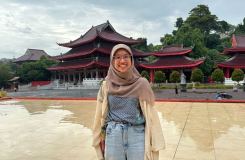 ソシエタス総合研究所 研究員Waode Hanifah Istiqomah(ワオデ ハニファー イスティコマー)
ソシエタス総合研究所 研究員Waode Hanifah Istiqomah(ワオデ ハニファー イスティコマー)Waode Hanifah Istiqomah(ワオデ ハニファー イスティコマー)の記事を見る
-
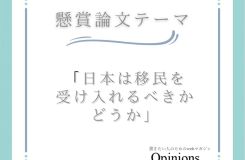 元芝園団地自治会岡﨑 広樹
元芝園団地自治会岡﨑 広樹岡﨑 広樹の記事を見る
-
 岡山外語学院留学生カーン エムディ マムン
岡山外語学院留学生カーン エムディ マムンカーン エムディ マムンの記事を見る
-
 行政書士板垣 岳人
行政書士板垣 岳人板垣 岳人の記事を見る
-
 Crimson Education教育コンサルタント蘇 暁辰(Xiaochen Su)
Crimson Education教育コンサルタント蘇 暁辰(Xiaochen Su)蘇 暁辰(Xiaochen Su)の記事を見る
-
 神戸大学准教授斉藤 善久
神戸大学准教授斉藤 善久斉藤 善久の記事を見る
-
 ドイツ在住阿部プッシェル 薫
ドイツ在住阿部プッシェル 薫阿部プッシェル 薫の記事を見る
-
 ライター/編集者黒部 麻子
ライター/編集者黒部 麻子黒部 麻子の記事を見る
-
 翻訳家田尻 潤子
翻訳家田尻 潤子田尻 潤子の記事を見る
-
 アブダビ環境庁長官 Environment Agency – Abu Dhabi (ead.gov.ae)シャイカ・サレム・アル・ダヘリ
アブダビ環境庁長官 Environment Agency – Abu Dhabi (ead.gov.ae)シャイカ・サレム・アル・ダヘリシャイカ・サレム・アル・ダヘリの記事を見る
-
 元整形外科医/農園主散木洞人
元整形外科医/農園主散木洞人散木洞人の記事を見る
-
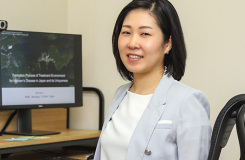 豊橋技術科学大学パク ミンジョン
豊橋技術科学大学パク ミンジョンパク ミンジョンの記事を見る
-
 生理革命委員会澤田まりあ、山形萌花、山領珊南
生理革命委員会澤田まりあ、山形萌花、山領珊南澤田まりあ、山形萌花、山領珊南の記事を見る
-
 SOMPOケア株式会社藤田 定司
SOMPOケア株式会社藤田 定司藤田 定司の記事を見る
-
 おかやま山陽高等学校橘 里香サニヤ
おかやま山陽高等学校橘 里香サニヤ橘 里香サニヤの記事を見る
-
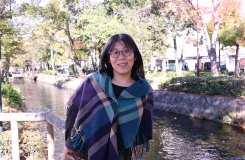 ソシエタス総合研究所 研究員坂入 悦子
ソシエタス総合研究所 研究員坂入 悦子坂入 悦子の記事を見る
-
 Hiro山下行政書士国際法務事務所 代表山下裕司
Hiro山下行政書士国際法務事務所 代表山下裕司山下裕司の記事を見る
-
 ソシエタス総合研究所 研究員Niklas Holzapfel ホルツ アッペル ニクラス
ソシエタス総合研究所 研究員Niklas Holzapfel ホルツ アッペル ニクラスNiklas Holzapfel ホルツ アッペル ニクラスの記事を見る
-
 サウンドエンジニアEmre・Ekici エムレ・エキジ
サウンドエンジニアEmre・Ekici エムレ・エキジEmre・Ekici エムレ・エキジの記事を見る
-
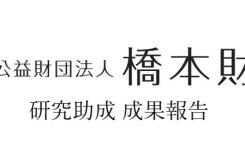 NPO法人岡山県国際団体協議会
NPO法人岡山県国際団体協議会岡山県国際団体協議会の記事を見る
-
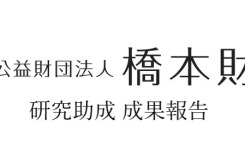 岡山大学 学術研究院 社会文化科学学域 教授東條 光彦
岡山大学 学術研究院 社会文化科学学域 教授東條 光彦東條 光彦の記事を見る
-
 福岡大学 名誉教授田村 和夫
福岡大学 名誉教授田村 和夫田村 和夫の記事を見る
-
 ソシエタス総合研究所 研究員相川 真穂
ソシエタス総合研究所 研究員相川 真穂相川 真穂の記事を見る
-
 一般社団法人京都総合科学研究所 アドバイザー松村 道郎
一般社団法人京都総合科学研究所 アドバイザー松村 道郎松村 道郎の記事を見る
-
 ワラム株式会社 代表取締役加藤 侑子
ワラム株式会社 代表取締役加藤 侑子加藤 侑子の記事を見る
-
 岡山市立操南中学校 教諭/NPO法人国際協力研究所・岡山代表理事竹島 潤
岡山市立操南中学校 教諭/NPO法人国際協力研究所・岡山代表理事竹島 潤竹島 潤の記事を見る
-
 新西横浜街の予防医療ケア研究室 保健師・看護師・元先端バイオ創薬ベンチャー取締役五十嵐 直敬
新西横浜街の予防医療ケア研究室 保健師・看護師・元先端バイオ創薬ベンチャー取締役五十嵐 直敬五十嵐 直敬の記事を見る
-
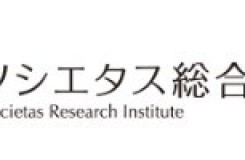 共著橋本俊明・秋吉湖音
共著橋本俊明・秋吉湖音橋本俊明・秋吉湖音の記事を見る
-
 ライター菊池 洋勝
ライター菊池 洋勝菊池 洋勝の記事を見る
-
 大東文化大学国際関係学部・特任教授 高崎経済大学経済学部・非常勤講師 目白大学経営学部経営学科&目白大学大学院経営学研究科 非常勤講師 長崎県佐世保市役所 経済活性化~産業振興に関するアドバイザー、博士(経済学)江崎 康弘
大東文化大学国際関係学部・特任教授 高崎経済大学経済学部・非常勤講師 目白大学経営学部経営学科&目白大学大学院経営学研究科 非常勤講師 長崎県佐世保市役所 経済活性化~産業振興に関するアドバイザー、博士(経済学)江崎 康弘江崎 康弘の記事を見る
-
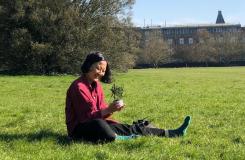 ソシエタス総合研究所 研究員秋吉 湖音
ソシエタス総合研究所 研究員秋吉 湖音秋吉 湖音の記事を見る
-
 JICA専門家足立 伸也
JICA専門家足立 伸也足立 伸也の記事を見る
-
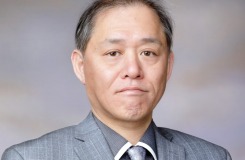 富士通株式会社 第三ファイナンス事業本部 シニアマネージャー安留 義孝
富士通株式会社 第三ファイナンス事業本部 シニアマネージャー安留 義孝安留 義孝の記事を見る
-
 EDAS(イーダス)理事長田村 拓
EDAS(イーダス)理事長田村 拓田村 拓の記事を見る
-
 監督・プロデューサー湯浅 典子
監督・プロデューサー湯浅 典子湯浅 典子の記事を見る
-
 日本経済大学 准教授山下 誠矢
日本経済大学 准教授山下 誠矢山下 誠矢の記事を見る
-
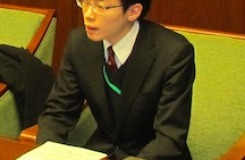 人と医療の研究室 代表池尻 達紀
人と医療の研究室 代表池尻 達紀池尻 達紀の記事を見る
-
 一般社団法人飛島学園 代表理事堂野 博之
一般社団法人飛島学園 代表理事堂野 博之堂野 博之の記事を見る
-
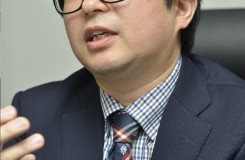 ニッセイ基礎研究所 生活研究部 主任研究員、ヘルスケアリサーチセンター・ジェロントロジー推進室兼任金 明中
ニッセイ基礎研究所 生活研究部 主任研究員、ヘルスケアリサーチセンター・ジェロントロジー推進室兼任金 明中金 明中の記事を見る
-
 医療法人財団足立病院 理事長、社会福祉法人あだち福祉会 理事長畑山 博
医療法人財団足立病院 理事長、社会福祉法人あだち福祉会 理事長畑山 博畑山 博の記事を見る
-
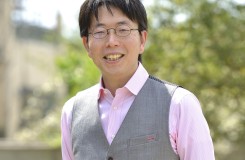 教育研究家、合同会社ライフ&ワーク代表妹尾 昌俊
教育研究家、合同会社ライフ&ワーク代表妹尾 昌俊妹尾 昌俊の記事を見る
-
 ハーバード大学ベス・イスラエル・ディーコネス・メディカルセンター、高度消化管/最小侵襲外科フェロー中元 啓太郎
ハーバード大学ベス・イスラエル・ディーコネス・メディカルセンター、高度消化管/最小侵襲外科フェロー中元 啓太郎中元 啓太郎の記事を見る
-
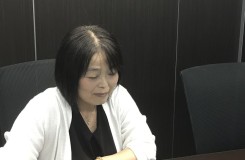 ソシエタス総合研究所 主任研究員井上 登紀子
ソシエタス総合研究所 主任研究員井上 登紀子井上 登紀子の記事を見る
-
 ソシエタス総合研究所 研究員松田 郁乃
ソシエタス総合研究所 研究員松田 郁乃松田 郁乃の記事を見る
-
 ソシエタス総合研究所 研究員アイシェ・ウルグン・ソゼン Ayse Ilgin Sozen
ソシエタス総合研究所 研究員アイシェ・ウルグン・ソゼン Ayse Ilgin Sozenアイシェ・ウルグン・ソゼン Ayse Ilgin Sozenの記事を見る
-
 NPO法人岡山市子どもセンター 事務局久川 春菜
NPO法人岡山市子どもセンター 事務局久川 春菜久川 春菜の記事を見る
-
 ユースワーカー(Youth Woker)森分 志学
ユースワーカー(Youth Woker)森分 志学森分 志学の記事を見る
-
 ペンネーム三村 喜久雄
ペンネーム三村 喜久雄三村 喜久雄の記事を見る
-
 ペンネーム黒木 洋一郎
ペンネーム黒木 洋一郎黒木 洋一郎の記事を見る
-
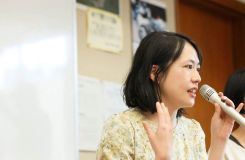 NPO法人チャリティーサンタ 理事河津 泉
NPO法人チャリティーサンタ 理事河津 泉河津 泉の記事を見る
-
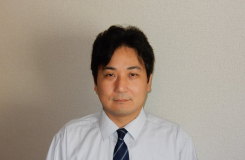 金沢大学人間社会学域地域創造学類・准教授 、特定非営利活動法人国土利用再編研究所・理事長林 直樹
金沢大学人間社会学域地域創造学類・准教授 、特定非営利活動法人国土利用再編研究所・理事長林 直樹林 直樹の記事を見る
-
 認定NPO法人ペアレント・サポートすてっぷ理事長安藤希代子
認定NPO法人ペアレント・サポートすてっぷ理事長安藤希代子安藤希代子の記事を見る
-
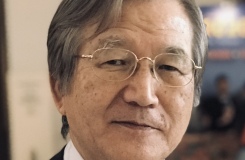 カリフォルニア大学サンフランシスコ校小児胸部心臓外科教授佐野俊二
カリフォルニア大学サンフランシスコ校小児胸部心臓外科教授佐野俊二佐野俊二の記事を見る
-
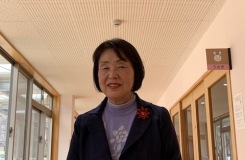 社会福祉法人 旭川荘 ひらたえがお保育園 園長江田 加代子
社会福祉法人 旭川荘 ひらたえがお保育園 園長江田 加代子江田 加代子の記事を見る
-
 NPO法人 おかやまUFE 副理事長 ・NPO法人 おかやまUFE 事務局阪井 ひとみ・永松千恵
NPO法人 おかやまUFE 副理事長 ・NPO法人 おかやまUFE 事務局阪井 ひとみ・永松千恵阪井 ひとみ・永松千恵 の記事を見る
-
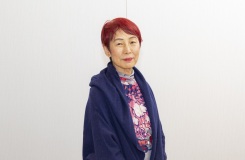 社会学者 東京大学名誉教授 認定NPO法人ウィメンズアクションネットワーク(WAN)理事長 上野 千鶴子
社会学者 東京大学名誉教授 認定NPO法人ウィメンズアクションネットワーク(WAN)理事長 上野 千鶴子上野 千鶴子 の記事を見る
-
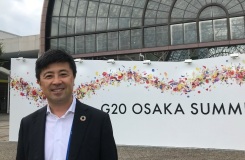 外務省 国際保健政策室長 鷲見 学
外務省 国際保健政策室長 鷲見 学鷲見 学の記事を見る
-
 プロ・アダプティブ・サーファー藤原(旧姓:川上)智貴
プロ・アダプティブ・サーファー藤原(旧姓:川上)智貴藤原(旧姓:川上)智貴の記事を見る
-
 京都大学霊長類研究所 教授正高信男
京都大学霊長類研究所 教授正高信男正高信男の記事を見る
-
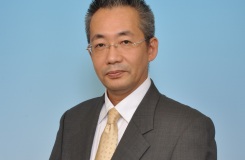 社会医療法人石川記念会HITO病院緩和ケア内科統括部長大坂巌
社会医療法人石川記念会HITO病院緩和ケア内科統括部長大坂巌大坂巌の記事を見る
-
 東京医療学院大学保健医療学部教授上田 諭
東京医療学院大学保健医療学部教授上田 諭上田 諭の記事を見る
-
 「夢を叶える145」ライター宮村孝博
「夢を叶える145」ライター宮村孝博宮村孝博の記事を見る
-
 NPO法人 Anneの家 代表 美作地区里親会会員松本芳也・淳子夫妻
NPO法人 Anneの家 代表 美作地区里親会会員松本芳也・淳子夫妻松本芳也・淳子夫妻の記事を見る
-
 特定非営利活動法人あかね 代表理事中山 遼
特定非営利活動法人あかね 代表理事中山 遼中山 遼の記事を見る
-
 大阪市立総合医療センター 緩和医療科部長 兼 緩和ケアセンター長 大阪市立大学医学部臨床准教授 一般社団法人「こどものホスピスプロジェクト」常務理事 日本小児科学会専門医 英国カーディフ大学緩和ケア認定医(Certificate in Palliative Care) 日本緩和医療学会暫定多田羅竜平
大阪市立総合医療センター 緩和医療科部長 兼 緩和ケアセンター長 大阪市立大学医学部臨床准教授 一般社団法人「こどものホスピスプロジェクト」常務理事 日本小児科学会専門医 英国カーディフ大学緩和ケア認定医(Certificate in Palliative Care) 日本緩和医療学会暫定多田羅竜平多田羅竜平の記事を見る
-
 NPO法人 岡山マインド「こころ」/代表理事 一般社団法人お互いさま・まびラボ/副代表理事多田伸志
NPO法人 岡山マインド「こころ」/代表理事 一般社団法人お互いさま・まびラボ/副代表理事多田伸志多田伸志の記事を見る
-
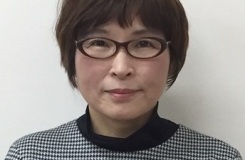 一般社団法人MY TREE代表理事 MY TREEペアレンツ・プログラムスーパーバイザー 認定フェミニストカウンセラー (公認心理師)中川和子
一般社団法人MY TREE代表理事 MY TREEペアレンツ・プログラムスーパーバイザー 認定フェミニストカウンセラー (公認心理師)中川和子中川和子の記事を見る
-
 兵庫県立ひょうごこころの医療センター精神科医師小田 陽彦
兵庫県立ひょうごこころの医療センター精神科医師小田 陽彦小田 陽彦の記事を見る
-
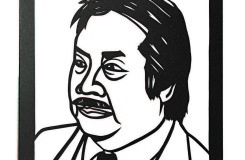 独立行政法人国立病院機構福山医療センター院長岩垣博己・堀井城一朗・矢野 平
独立行政法人国立病院機構福山医療センター院長岩垣博己・堀井城一朗・矢野 平岩垣博己・堀井城一朗・矢野 平の記事を見る
-
 岡山大学 教授 文学部長田中 共子
岡山大学 教授 文学部長田中 共子田中 共子の記事を見る
-
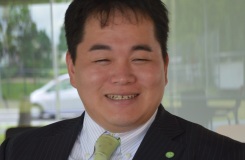 Civil Engineer (仕組みつくりの技術者)石田篤史
Civil Engineer (仕組みつくりの技術者)石田篤史石田篤史の記事を見る
-
 一般財団法人キヤノングローバル戦略研究所 研究主幹・経済学博士松山幸弘
一般財団法人キヤノングローバル戦略研究所 研究主幹・経済学博士松山幸弘松山幸弘の記事を見る
-
 岡山大学生殖補助医療技術教育研究センター ART教育研究部門長・教授舟橋 弘晃
岡山大学生殖補助医療技術教育研究センター ART教育研究部門長・教授舟橋 弘晃舟橋 弘晃の記事を見る
-
 医療法人サンズ理事長浅野 直
医療法人サンズ理事長浅野 直浅野 直の記事を見る
-
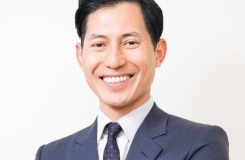 株式会社ヘリオス 代表執行役社長CEO鍵本忠尚
株式会社ヘリオス 代表執行役社長CEO鍵本忠尚鍵本忠尚の記事を見る
-
 慶應義塾大学文学部人間科学専攻教授(医療人類学) McGill大学人類学部・医療社会研究学部Ph.D.北中淳子
慶應義塾大学文学部人間科学専攻教授(医療人類学) McGill大学人類学部・医療社会研究学部Ph.D.北中淳子北中淳子の記事を見る
-
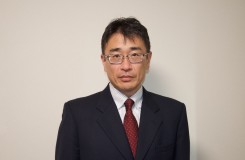 岡山大学病院 緩和支持医療科片山英樹
岡山大学病院 緩和支持医療科片山英樹片山英樹の記事を見る
-
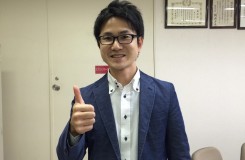 岡山市役所 保健福祉企画総務課松岡克朗
岡山市役所 保健福祉企画総務課松岡克朗松岡克朗の記事を見る
-
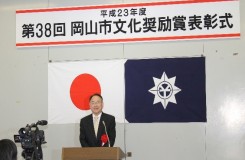 近現代史研究家青木康嘉
近現代史研究家青木康嘉青木康嘉の記事を見る
-
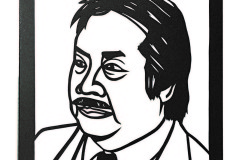 独立行政法人国立病院機構福山医療センター院長岩垣博己・長谷川利路・中島正勝
独立行政法人国立病院機構福山医療センター院長岩垣博己・長谷川利路・中島正勝岩垣博己・長谷川利路・中島正勝の記事を見る
-
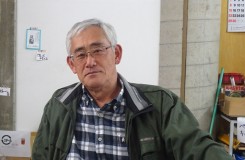 岡山高等学院 副校長 水野文一郎
岡山高等学院 副校長 水野文一郎水野文一郎の記事を見る
-
 社会の仕組み屋、社会の編集者石原 達也
社会の仕組み屋、社会の編集者石原 達也石原 達也の記事を見る
-
 一般社団法人SGSG理事長/中国学園大学子ども学部講師野村泰介
一般社団法人SGSG理事長/中国学園大学子ども学部講師野村泰介野村泰介の記事を見る
-
 一橋大学経済研究所 教授神林 龍
一橋大学経済研究所 教授神林 龍神林 龍の記事を見る
-
 特定医療法人自由会 理事 (社会福祉法人敬友会 理事、公益財団法人橋本財団 理事)橋本 健二
特定医療法人自由会 理事 (社会福祉法人敬友会 理事、公益財団法人橋本財団 理事)橋本 健二橋本 健二の記事を見る
-
 医療法人社団 岡山二人クリニック 理事長、医学博士林 伸旨
医療法人社団 岡山二人クリニック 理事長、医学博士林 伸旨林 伸旨の記事を見る
-
 フリーライター渡辺嗣郎(わたなべ しろう)
フリーライター渡辺嗣郎(わたなべ しろう)渡辺嗣郎(わたなべ しろう)の記事を見る
-
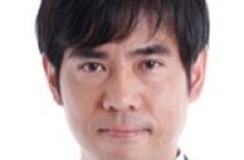 国立大学法人岡山大学 副理事(国際担当)横井 篤文
国立大学法人岡山大学 副理事(国際担当)横井 篤文横井 篤文の記事を見る
-
 ペンネームドクターX
ペンネームドクターXドクターXの記事を見る
-
 NPO法人 山村エンタープライズ 代表理事藤井裕也
NPO法人 山村エンタープライズ 代表理事藤井裕也藤井裕也の記事を見る
-
 キャンサー・ソリューションズ株式会社 代表取締役社長桜井 なおみ
キャンサー・ソリューションズ株式会社 代表取締役社長桜井 なおみ桜井 なおみの記事を見る
-
 AMDA(アムダ) グループ代表・認定非営利活動法人AMDA 理事長菅波 茂
AMDA(アムダ) グループ代表・認定非営利活動法人AMDA 理事長菅波 茂菅波 茂の記事を見る
-
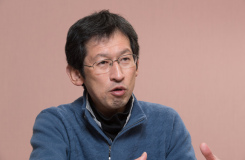 ふれあい歯科ごとう代表五島 朋幸
ふれあい歯科ごとう代表五島 朋幸五島 朋幸の記事を見る
-
 介護従事者髙田 浩一
介護従事者髙田 浩一髙田 浩一の記事を見る
-
 ケアマネ-ジャー・社会福祉士かえる ちから
ケアマネ-ジャー・社会福祉士かえる ちからかえる ちからの記事を見る
-
 五常・アンド・カンパニー株式会社 代表取締役社長慎 泰俊
五常・アンド・カンパニー株式会社 代表取締役社長慎 泰俊慎 泰俊の記事を見る
-
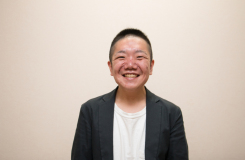 NPO法人 ポケットサポート代表理事三好 祐也
NPO法人 ポケットサポート代表理事三好 祐也三好 祐也の記事を見る
-
 医療法人 寺田病院 院長板野 聡
医療法人 寺田病院 院長板野 聡板野 聡の記事を見る
-
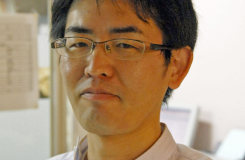 鳥取市立病院 地域医療総合支援センター 生活支援室 副室長、リハビリテーション部 副部長、歯科 医長目黒 道生
鳥取市立病院 地域医療総合支援センター 生活支援室 副室長、リハビリテーション部 副部長、歯科 医長目黒 道生目黒 道生の記事を見る
-
 鳥取市立病院地域医療総合支援センター長 鳥取市福祉部参与足立 誠司
鳥取市立病院地域医療総合支援センター長 鳥取市福祉部参与足立 誠司足立 誠司の記事を見る
-
 ペンネーム池井戸 高志
ペンネーム池井戸 高志池井戸 高志の記事を見る
-
 ペンネーム池田 出水
ペンネーム池田 出水池田 出水の記事を見る
-
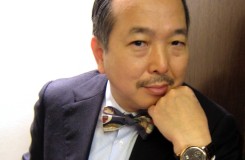 岡山大学大学院ヘルスシステム統合科学研究科教授松岡 順治
岡山大学大学院ヘルスシステム統合科学研究科教授松岡 順治松岡 順治の記事を見る
-
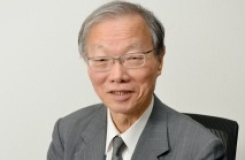 鳥取市立病院 名誉院長田中 紀章
鳥取市立病院 名誉院長田中 紀章田中 紀章の記事を見る
-
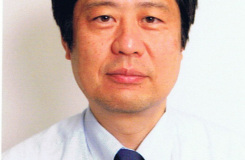 岡山大学大学院保健学研究科 副研究科長 教授齋藤 信也
岡山大学大学院保健学研究科 副研究科長 教授齋藤 信也齋藤 信也の記事を見る
-
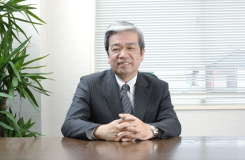 公益財団法人橋本財団 理事長、医学博士橋本 俊明
公益財団法人橋本財団 理事長、医学博士橋本 俊明橋本 俊明の記事を見る

